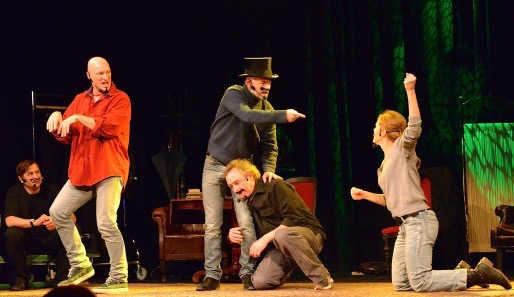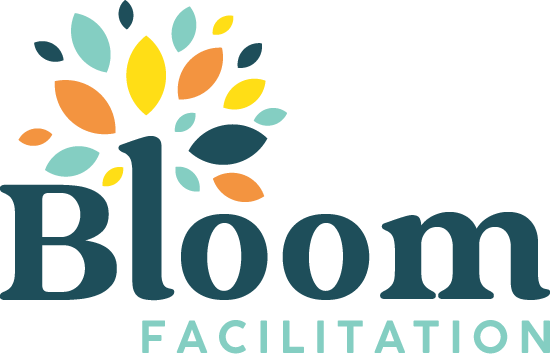Facilitation Roles Series
There are many roles to play as a process facilitator or as the leader of a meeting. I have a framework of eight roles that I teach: Party Host, Race Car Driver, Mechanic, Nurse, Trip Leader, Improv Comedian, Designer, and Rugby Referee. In this post I want to highlight the role of the:
Improv Comedian
Using a mindset of Yes, and to accept all contributions and build on them; to remain playful with ideas and allow creativity to flow, open to unexpected outcomes.

Embracing Emergence: The Improv Mindset in Facilitation
One thing I love about being a facilitator as opposed to a speaker is that you never really know what is going to happen. Although you have defined the objectives and developed a meeting design to accomplish the objectives, you want to remain flexible to be able to build on whatever emerges in the room.
In graduate school, our professor always said, “Embrace the ambiguity.” I keep this phrase written on my office wall to remind me that the magic is in those spaces between what is known. The place for new discovery is where two people come to the same meeting with the same objective but with two very different perspectives on the problem and two very different visions for the solution.
Embracing Mistakes: Leveraging Creativity in Unexpected Moments
As a facilitator, we help create space for all of the perspectives and create processes by which those differing perspectives can be understood, explored, and brought together in the strongest possible way. 
If you haven’t studied improv before, I highly recommend it. The basic rules of improv, as outlined by Tina Fey, are:
- Rule 1: Say Yes. Agree with your scene partners, because when you agree it allows for new things to happen and emerge whereas if you say no the energy dies and the scene dies with it.
- Rule 2: Say Yes AND. Don’t just agree and then leave your scene partner hanging. Add onto their idea with your own contributions. This helps to build something creative and collaborative.
- Rule 3: Make Statements. When you make a statement it grounds the scene in specific details. For example, saying, “I wish we could play on the jungle gym” gives your scene partner much more to work with than, “Want to play?”
- Rule 4: There Are No Mistakes. When something strange or unexpected or even embarrassing happens during a scene…. Great! More to work with! When you don’t take yourself too seriously and you are open to seeing mistakes as opportunities, a lot of creative serendipity can enter your group. There are tons of amazing inventions that started out as a mistake – perhaps you are about to join that storied history.
Improv’s Guide to Meeting Success: Practical Tips for Facilitators
- When helping a group generate ideas, teach them the Practice of saying Yes, and to keep the ideas flowing. Also, consider using a structured process for adding ideas since people have the tendency to start evaluating and problem-solving before they have fully explored all their options.
- Bring a facilitation toolkit of supplies (flip charts, markers, stickers, index cards) so you can pivot and change the agenda as needed.
- Stimulate creative thinking by using a warm-up activity. You can find creativity exercises in the book ThinkerToys.
- Establish your own ground rules of how you are going to work as a group to accomplish your objectives in the most inclusive and collaborative way possible.
- If group members are stuck, ask them to restate their ideas or concerns as specifically as possible. Restate what you have heard to make sure the details are clear. It is often in the details where plans either come into focus or where the issues that need to be worked out further become clear.
- Don’t be afraid to have fun! We can often think more clearly when we are able to laugh. Even when there are serious problems to solve, keeping a sense of humor is extremely valuable.
For more in this series, see what a facilitator can learn from a:
